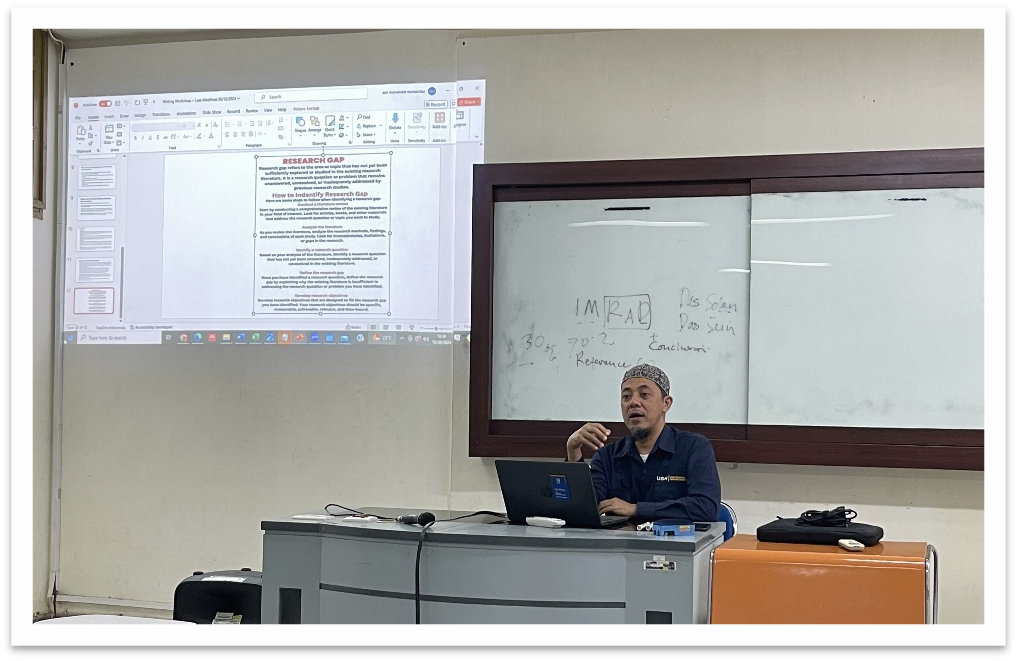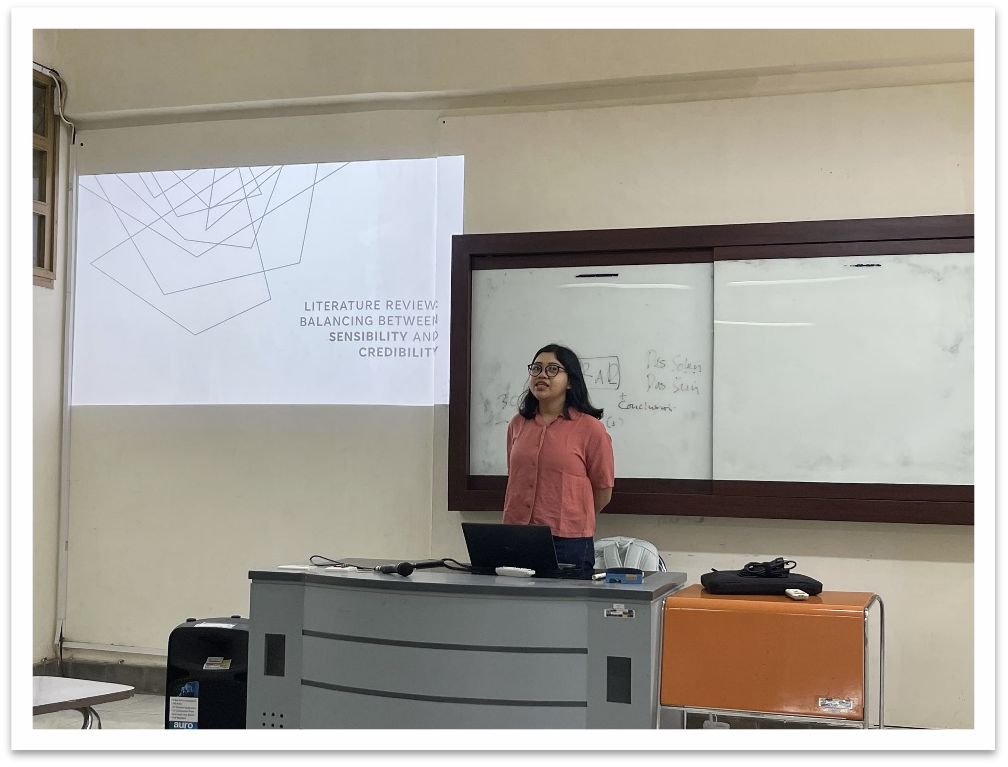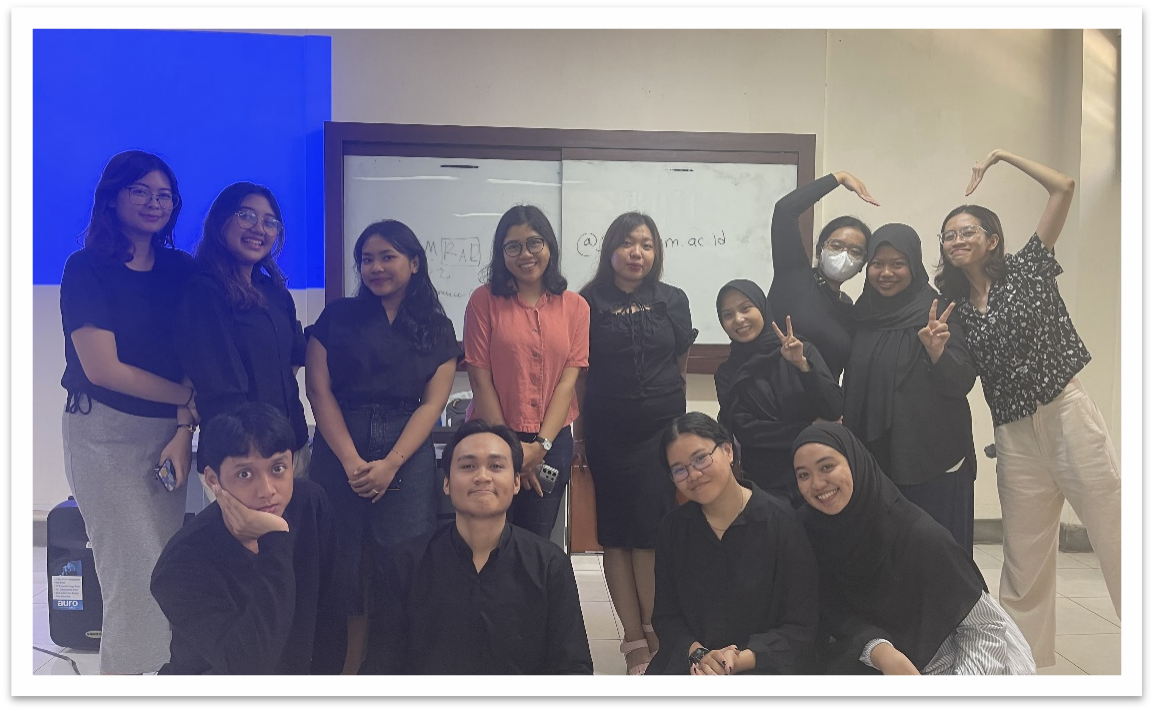
The Master of American Studies study programme in collaboration with the Association of American Studies Students and Alumni (ASSA) organised a Journal Article Writing Workshop. This internal activity which was attended by American Studies Master students was held on Wednesday, 17 September 2024.
The event was divided into two sessions. In the first session, the material was delivered by Dr Aris Munandar, M. Hum, Head of the Master of American Studies Program, Universitas Gadjah Mada. He has conducted various researches covering topics such as language, communication and culture, applied linguistics, educational linguistics, and socio-humanities.

In this first session, the speakers conveyed an overview of the structure of writing journal articles to students. Generally, the core structure of a journal article consists of introduction, method, result and discussion or commonly abbreviated (IMRaD). In more detail, journal articles are generally systematically composed of abstract, introduction, literature review, methods, results and discussion, and conclusion and reference. In writing the abstract, the author must pay attention that the abstract includes the background, objectives, methods, results, and contributions or implications of the research. Then, when presenting the introduction, the author must be able to present a description of the latest phenomenon studied and the specific objectives of the study. Third, when writing the literature review, the author can explain the development of previous research, identify research gaps, and affirm the urgency of the chosen research topic. Fourth, in the methods section, researchers must explain research procedures and how to analyse data clearly and systematically. Fifth, when presenting results and discussion, researchers can connect research data with relevant concepts and literature. Finally, in the conclusion section, researchers are expected to emphasise the main findings and implications of the research with related issues.
In the second session, the material was delivered by Emma Natasha Octoveria, S. S., M. A. who is a graduate of Master of Linguistics, Gadjah Mada University. Collaborating with Dr. Aris Munandar, M. Hum., she has successfully published her article in the Scopus Q-1 indexed journal.

In this second session, Emma delivered material entitled “Literature Review: Balancing between Sensibility and Credibility”. In her presentation, she provided many tips and tricks in writing a literature review. In writing a literature review, the author must pay attention to previous research that will be reviewed must be relevant to the material object, formal object, and context that will be studied. The author can do a literature review mapping first to facilitate the search and writing. Then, she stated that the key to receiving articles in reputable journals is the selection of previous research taken from reputable journal articles. In addition, in this session, Emma also provided practical examples of writing good literature reviews to students by showing examples of writing literature reviews from reputable and quality journal articles. To facilitate writing citations and references, Emma also demonstrated directly how to use the reference management application, Mendeley, easily, practically, and efficiently. “The use of this Mendeley will greatly help in the efficiency and management of the author’s writing time,” she said.
In addition to explaining the basic concept of article writing structure, he also conveyed other important things related to tips and tricks for students to conduct research. Some of them are, first understanding the target of the article’s readers, considering what they should need to know, and also providing evidence in an article so that the assumptions given are justified. In short, the event was closed with an interactive question and answer activity from the participants, and the resource person also gave very concise and easy-to-understand answers so that it increased the participants’ insight in understanding article writing.

At the end of the session, each resource person emphasized participants/students to increase their reading references of reputable journal articles. This aims to build a reading habit and familiarize students with being exposed to quality academic writing structures, which will indirectly build students’ thinking patterns to be able to produce quality research reports in the form of journal articles.

